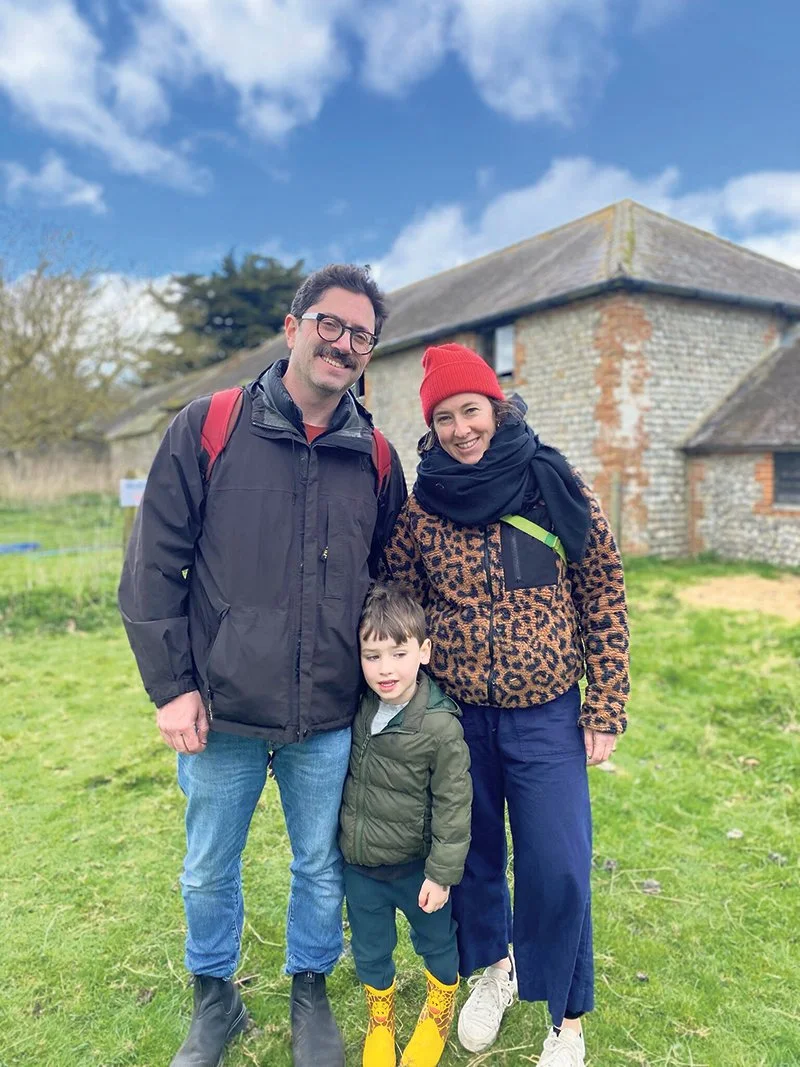Growing number of younger Canadians donating to charities in their will
Celina Carter, shown here with her family, included a charitable gift in here will to leave a lasting impact on issues she cares about. SUPPLIED
Celina Carter is a research scientist, a nurse with a PhD in public health and a young mother who has long been passionate about donating to charities championing environmental and social causes.
In the past, she often responded generously to donation requests on an ad hoc basis but found herself longing for a more organized approach. “Sometimes I get overwhelmed with all the needs around me. I often used to say yes whenever I was asked for money, but I realized that was a chaotic approach and not the best way to make a real difference.”
Ms. Carter decided to plan her donations in a more organized way, which included setting up monthly giving to organizations that most resonated with her values.
“It’s been a gift to narrow down what’s important to me and realize that we can’t fix everything. Personally, I believe if the environment was protected and if Indigenous groups had sovereignty and justice, a lot of issues would be resolved. Getting clear on that has been helpful in terms of where I put my time and money.”
Prioritizing monthly giving helps her plan ahead and helps the organizations she supports with a reliable source of funding. She even took this a step further when she and her husband welcomed their son and drafted their first will. They chose to include a charitable gift in their will, seeing it as a natural extension of their giving.
“Our campaign is fuelled by the idea that every Canadian, regardless of wealth, can leave something meaningful behind. ”
Rising appeal of charitable giving through bequests in wills
Ms. Carter is among the growing number of Canadians who have included a charitable bequest in their will. In 2020, 5 per cent of Canadians reported leaving a gift to charity in their will, according to research conducted for the Canadian Association of Gift Planners (CAGP) Foundation. Similar research in 2022 found the figure had risen to 8 per cent and initial findings from 2024 showed the number approaching 10 per cent.
The CAGP Foundation research has also found a shift in the age demographics, with the majority of those attracted to this form of charitable giving being younger Canadians, like Ms. Carter.
“We are now seeing that more Canadians age 50 and younger are interested in leaving a gift in their will, a change from a few years ago when the idea was more likely to appeal to older people,” says Laurie Fox, campaign director for the national Will Power campaign co-ordinated by the CAGP Foundation. “And we have now seen that 10 per cent of Canadians in the 27 to 42 age group, the millennial generation, have already left a gift in their will as a way to leave an enduring impact on the issues that matter to them, compared to 6 per cent of boomers.”
Will Power: An initiative to inspire Canadians to consider gifts in will
The national Will Power campaign aims to raise awareness of the impact individuals can make with even a small percentage of their estate value donated to charity.
The campaign is also designed to address concerns that could discourage Canadians from leaving charitable bequests.
“One of the reasons people are reluctant to make a charitable bequest is their worry that doing so will not leave enough resources for their family to sustain themselves,” Ms. Fox says.
“This is an understandable concern. We all want to make sure that we’ve done what we can to help our loved ones thrive after we’re gone. But it doesn’t have to be a binary choice; you can support your family and the causes you care about.”
Ms. Fox points out that when you leave a gift to charity in your will, your estate will receive a charitable tax credit that can help pay down the tax bill.
One example: With an estate valued at $650,000, leaving 5 per cent to charity (a $32,500 donation), the estate would get about a 2.5 per cent reduction in taxes (equivalent to $16,250). The Will Power campaign urges people to speak to an adviser who can help them maximize the tax benefits of their charitable giving.
“Our campaign is fuelled by the idea that every Canadian, regardless of wealth, can leave something meaningful behind,” she says.
A legacy with impact
Ms. Carter decided to allocate 2.5 per cent of her estate to Indigenous organizations and 2.5 per cent to environmental causes like land stewardship and water protection.
This decision wasn’t just about financial planning; it was also about creating2 a legacy for her son. “My son will receive the majority of my estate, and I hope this will inspire him to do the same and share the wealth.”
For more information, visit willpower.ca
To view this report on The Globe's website, visit globeandmail.com
To view the full report as it appeared in The Globe's print edition Estate planning and legacy giving


